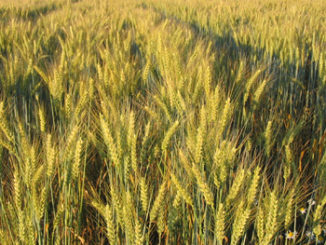Following the vote on the Common Agricultural Policy (CAP) taken by the EU Parliament Committee for Agriculture and Rural Development (COMAGRI) in January, and ahead of the full European Parliament plenary vote scheduled for 13th March, APRODEV – the Association of World Council of Churches related Development Organisations in Europe – has released a statement regarding the international responsibility of the EU’s agricultural policy.

The statement suggests that the vote in COMARGI further weakened important but insufficient Commission proposals in the CAP reform with regard to a transition towards sustainable agriculture. It also states that the Agriculture Committee rejected proposals that would help the EU assume its international responsibility, proposals that had been unanimously adopted in the EP Development Committee. It also highlights the importance and potential impact of crop rotation to reduce reliance on protein imports, as well as the growing figures on food waste which undermine arguments that global productivity must be increased to feed the world.
APRODEV is calling on Parliamentarians to vote in favour of crop rotation in March as a core element of the CAP greening proposal. Crop rotation should not be seen in isolation but be accompanied by other measures such as capping and fairer distribution of EU subsidies to prevent market concentration, they say.
Parliamentarians should also vote in favour of a better monitoring mechanism on the likely effects on prices and trade flows which can help prevent or reverse negative impacts on poor farmers in developing countries.
Find the full statement here.
In addition, APRODEV have issued a paper demonstrating that Crop Rotation Scores Better on WTO Compatibility and Benefits – Control is Feasible:
Crop Rotation in the CAP reform: Relevance of WTO constraints, benefits and control – published in February 2013 – addresses the urgent debate of which solution provides the better response to the challenges of climate change, biodiversity loss and depletion of soil fertility: crop rotation or crop diversification. The difference is far from trivial. Experts and institutions clearly agree that rotation is much more effective in achieving good ecosystem functions. This paper shows that crop rotation fully complies with WTO green box requirements and can even be more easily defended than crop diversification. Also the paper demonstrates that the crop rotation measure would be an annual obligation with a pluriannual scope and control for which effective solutions already exist. The paper is supported by:
CAP Reform vs WTO: Crop Diversification or Crop Rotation, by NCCR Trade Regulation CAP reform and WTO on crop rotation by NCCR Trade Regulation, WTI, Bern, Switzerland, 17 February 2013.
In July 2012 APRODEV jointly published a paper with Friends of the Earth Europe, EU-IFOAM and Pesticide Action Network Europe: Crop Rotation benefiting farmers, the environment and the economy. Find this along with many more in the document ARC-hive!




